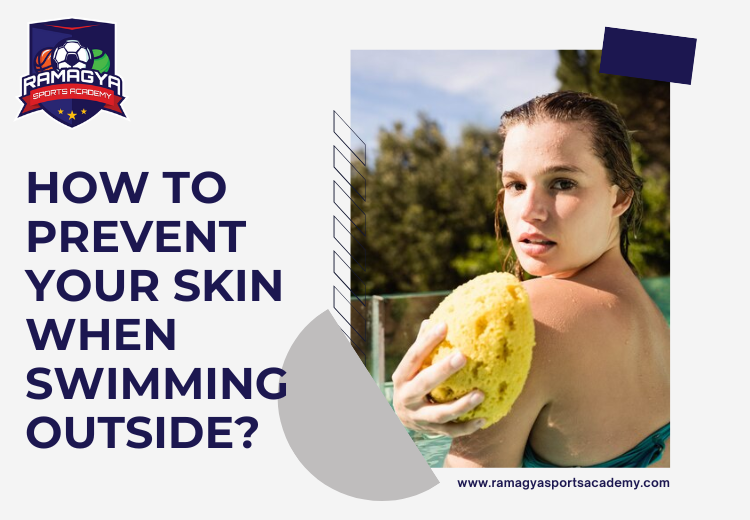
Cardio Before vs. After Weight Training: Maximizing Your Workout Routine
February 9, 2024
5 Ways to Care for Your Skin Before and After a Swim
February 29, 2024How to Prevent your Skin when Swimming Outside?
 Swimming is an enjoyable form of exercise that offers numerous mental and physical health[1] benefits, working every muscle group in your body while improving cardiovascular health, strength and flexibility. Swimming provides a great way to stay in shape during hotter weather months while prevent your skin from UV rays or chlorine-laden waters that could otherwise do lasting damage. Swimming also allows individuals to achieve physical tranquility through frequent exercises that focus on breath control, calm breathing and weightlessness in water which all help to enhance mental wellness.
Many consider swimming to be a therapeutic and relaxing activity that can benefit their overall health, helping them unwind and relax. Swimming can also help strengthen muscles while increasing flexibility and range of motion for greater range and peace. It doesn’t matter if you are doing laps in the pool or participating in aqua aerobics; incorporating swimming into your workout routine can lead to significant improvements in your overall health and fitness.
Going to a pool during the summer months often prompts questions about preventing tanning, choosing an optimal SPF sunscreen, or taking additional precautions when swimming in reflective environments such as lakes or pools. We hope to shed light on these subjects here and answer all questions raised about preventing skin when swimming outdoors in this blog.
Swimming is an enjoyable form of exercise that offers numerous mental and physical health[1] benefits, working every muscle group in your body while improving cardiovascular health, strength and flexibility. Swimming provides a great way to stay in shape during hotter weather months while prevent your skin from UV rays or chlorine-laden waters that could otherwise do lasting damage. Swimming also allows individuals to achieve physical tranquility through frequent exercises that focus on breath control, calm breathing and weightlessness in water which all help to enhance mental wellness.
Many consider swimming to be a therapeutic and relaxing activity that can benefit their overall health, helping them unwind and relax. Swimming can also help strengthen muscles while increasing flexibility and range of motion for greater range and peace. It doesn’t matter if you are doing laps in the pool or participating in aqua aerobics; incorporating swimming into your workout routine can lead to significant improvements in your overall health and fitness.
Going to a pool during the summer months often prompts questions about preventing tanning, choosing an optimal SPF sunscreen, or taking additional precautions when swimming in reflective environments such as lakes or pools. We hope to shed light on these subjects here and answer all questions raised about preventing skin when swimming outdoors in this blog.
5 ways to Prevent your Skin
- Choosing the Right Sunscreen:
- How to prevent tanning while swimming?
- To prevent sun damage to your skin, use sunscreen in addition to clothing and accessories that offer protection. UPF (Ultraviolet Protection Factor)-equipped swimwear offers an extra barrier against UV radiation.
- Put on a broad-brimmed cap to provide shade for your face, neck, and ears. Additionally, remember to wear sunglasses that block UV rays to safeguard your eyes.
- When UV radiation is at its highest, which is usually between 10 a.m. and 4 p.m., avoid swimming. To cut down on sun exposure and lower your chance of tanning, plan your swims for later in the afternoon or early in the morning.
- To avoid tanning, swim in regions with shade whenever feasible to limit your exposure to the sun. Seek out naturally occurring sources of shade, such as trees, umbrellas, or covered buildings.
- Moisturize After Swimming: Chlorine, commonly used to purify swimming pools, can be harsh on the skin. Regular exposure may lead to dryness, itching and irritation while swimming can rob it of essential moisture and natural oils that make up healthy skin, leaving swimmers feeling tight, dehydrated, and tightened up. After taking a bath, make sure to moisturize your skin to restore lost moisture and avoid it drying out and becoming irritated. Apply an appropriate non-comedogenic lotion liberally across damp skin in order to retain water content and preserve its quality. Lotion should never irritate the skin. To maintain smooth, moisturized skin after swimming, be sure to generously apply moisturizer after extended exposure to seawater or regularly after swimming in chlorinated waters – either way, it’s important that regular moisturization after each swim helps your skin look its best and feel comfortable.
- Always avoid indoor swimming pools: While using an indoor pool may be convenient and straightforward, you must remain aware of potential health hazards associated with its use. Indoor pools often contain rest over chlorine and other toxins, which make breathing hazardous. Pollutants can increase existing illnesses and cause respiratory discomfort for those suffering from asthma or allergies. Furthermore, the risk of infection increases if indoor pools aren’t regularly cleaned and maintained. Humidity and heat promote the spread of bacteria, viruses, and other infectious agents that cause infection; indoor swimming pools also increase this risk as they promote accidents among their users as well as disease transmission between users.
- Rinse and Replenish After Swimming: After swimming, always rinse and replenish your skin since chemicals in pools or natural water bodies like chlorine, salinity or other substances can deplete its natural oils and lead to dryness or irritation of your skin. Saltwater may not be as damaging to skin as chlorine, but it still has the potential to dry it out and dehydrate it significantly. To protect yourself and eliminate any unpleasant residue, make sure you thoroughly rinse off both after swimming to eliminate irritation and residue build-up. Use a mild cleanser with warm or cool water when taking a shower to help rid your skin of pollutants such as salt and chlorine, paying particular attention to dry or uncomfortable regions like your face, neck and underarms. For optimal results, use a soft towel when pat drying off afterwards – any excessive rubbing could further dehydrate the skin and should be avoided to preserve its hydration levels.
Conclusion
In conclusion, it’s essential that outdoor swimmers wear skin protection in order to prevent irritation, dryness, and sunburn. Take proactive steps against UV radiation, chlorine exposure, and saltwater exposure by applying sunscreen, donning protective clothes, seeking shade when possible and cleaning off after each swim – this way, you can reap all the health benefits while maintaining resilient, resilient skin that resists outside influences – it is the key to safely enjoy outdoor activities while prioritizing prevent your skin!Read our Article: Dive Into Efficiency: Mastering Your Swimming Stroke at Ramagya Sports Academy



